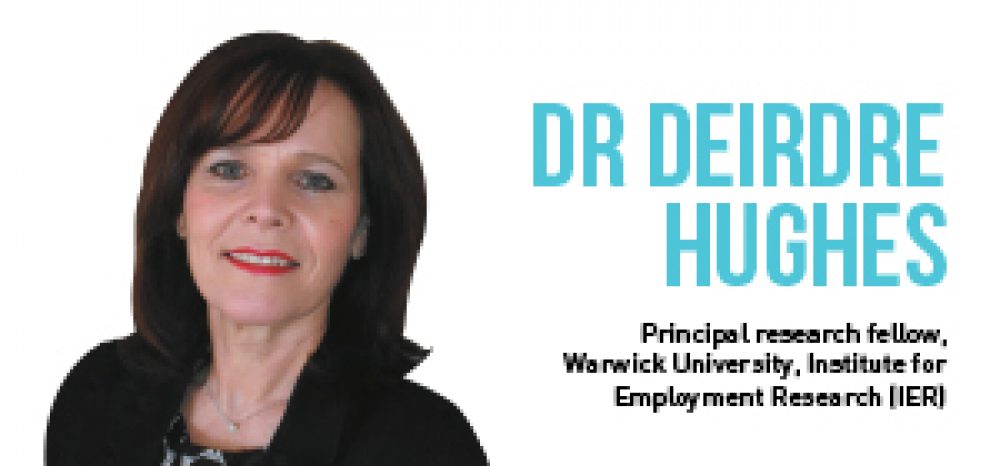Fresh from her appearance on the Edge annual lecture panel, Deirdre Hughes explains how a skills gap solution might be a fully functioning careers guidance system for young people.
We all know that most employers, particularly smaller businesses, value experience above all other criteria when it comes to recruiting young people.
But declining numbers of young people are getting experience of work while still at school, college or university; fewer employers are recruiting young people ; and there is a new reality that careers support for young people throughout their formal and informal schooling is not working well.
Many families are well aware of the human costs of child poverty and youth unemployment.
Achieving a culture change in careers and employability provision is about a shift from complexity to simplicity
Any prolonged delay in finding a foothold into a job or career can seriously damage a young person’s confidence and self-esteem. This can have can have a lasting scarring effect and represents a real waste of young people’s talent and resource.
Imagine a scenario whereby every young person in England thinks about routes to success from an early age in the knowledge that they are continuously gaining some form of relevant experience and exposure to working life. Also, imagine what it might feel like to know that you will be given careers and employability support from a wide range of sources — maybe some beyond your wildest dreams.
People who inspire you, places that invigorate and motivate you to connect your day-today learning to future work possibilities, projects that stretch and challenge you to achieve more. Finally, think about what success would look like when it comes to a ‘careers offer’ for all young people in our cities and towns across England?
For many young people (and their families), as well as for many employers the careers and employability landscape is both complex and confusing.
Achieving a culture change in careers and employability provision is about a shift from complexity to simplicity; moving away from constantly layering up new initiatives; supporting young people to find possibilities to differentiate themselves on their way to job and/or career success; and making explicit a career pathways/careers offer that every young person should experience to achieve the best possible set of outcomes from his/her schooling that will inform their future working lives.
In June 2015, the London Enterprise Panel, led by Boris Johnson MP, set out its vision for shaping a successful careers offer for every young London. This included a vision for more young people to accumulate at least 100 hours experience of the world of work by the age of 16 years old.
In mid-November 2015, the London Ambitions report and its leading supporters from business, education, careers, enterprise and human resource specialists will put the spotlight on ways of creating more opportunities for young people. No-one can predict jobs of the future with any certainty — but the more we can prepare young people for challenges that lie ahead this improves their future prosperity and life chances.
That is why I also support the principle of helping more young people who achieve GCSE maths (grade C or above) to consider the added-benefits of staying with maths and understanding its relevance to everyday life now and in the future. In 2014, 250,000 students passed GCSE maths (grade C or above) but did not continue at AS/A-level having achieved the grade, but then dropping the subject at 16.
A Higher Education Academy (HEA) Mathematics Transitions report investigated the mathematical and statistical requirements of university degrees in business and management, chemistry, computing, economics, geography, sociology and psychology. They discovered more than 80,000 students following these courses struggled to meet their mathematical demands. Also, around 178,100 of 16 to 18-year-olds failed to complete the post-16 qualifications they had embarked upon in 2012-13. Might this situation be reversed if careers support services and maths were both made more relevant to young people’s future prospects and their everyday lives?
Read more about Dr Hughes’ appearance at the Edge Foundation annual lecture here.



Your thoughts